There’s a mistaken belief that keeps re-emerging that agroecology is about going backwards. It may be a convenient way to dismiss it. Nevertheless, how do we challenge and reverse this mistaken perspective?
“If we don’t deepen our relationship with Nature and reconnect to our culture and history that are deeply embedded in this landscape, we will never find our way to living in harmony with Nature,” said Nomore, a junior village head in Mhandarume, Chimanimani District in Zimbabwe, at a meeting I attended there. “And only when we live again in harmony with Nature will we have streams and rivers running again. Only then will we learn to restore health to our soils.”
Nomore was part of a gathering at PORET, an Agroecology centre for arid and semi-arid areas. PORET is a member of PELUM, a founding member of AFSA (Alliance for Food Sovereignty in Africa). The gathering was looking at how to establish an ABN (African Biodiversity Network) node in Zimbabwe. ABN is also a founding member of AFSA. As AFSA we are a gathering of civil society voices and actions from around the continent. At the heart of our work, which reaches to villages and communities all over the continent through organisations like PORET, is agroecology.
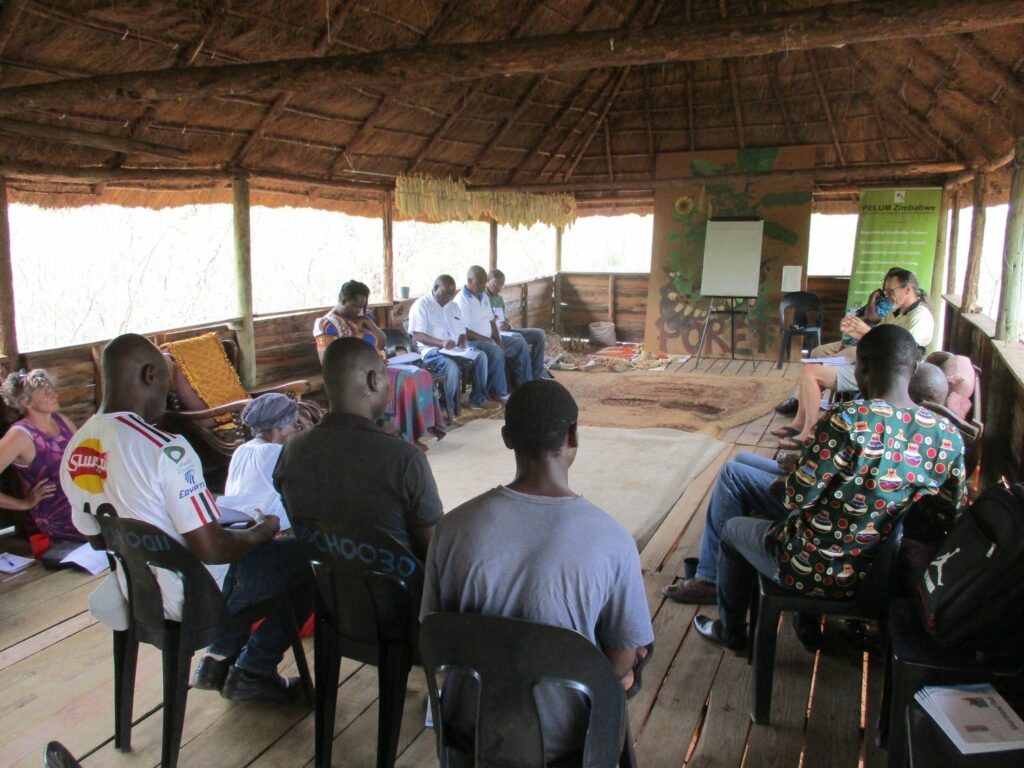
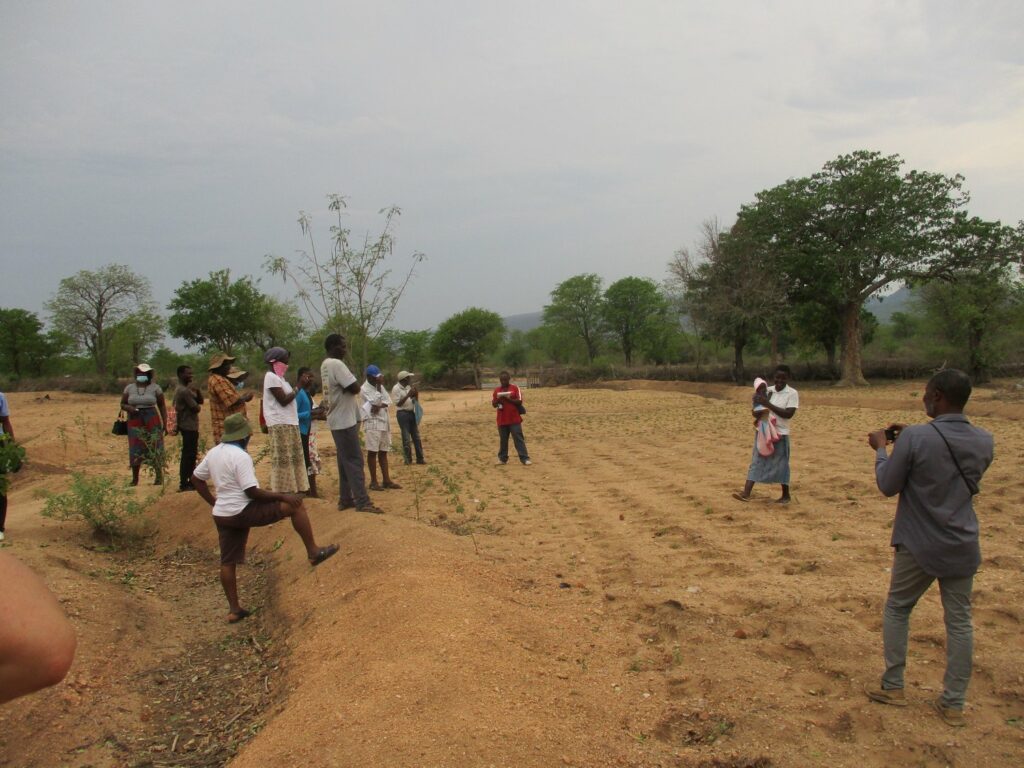
Yet, there exists a perception that agroecology wants to take people backwards. “An army of internationally-funded NGOs claiming FAO’s imprimatur and support have descended on Africa. They’re working hard to stop 21st Century agricultural technologies such as genetically modified crops (GMOs) and advanced seed varieties, modern and safe pesticides and fertilizers. In its place, they advocate agroecology idealizing peasant labour and retrograde subsistence farming. In short, they reject the Green Revolution’s successes and dismiss the billions of lives saved from starvation, instead promoting, in the recent words of US FAO ambassador Kip Tom, an “endless cycle of back-breaking labour and low yield production” that today keeps “much of the world in underdevelopment.” So writes James Njoroge recently in the European Scientist, quoting from articles of a similar tone from Kip Tom, the United States Ambassador to the FAO.
This is plainly a mistaken perception, whether purposeful or not. Perhaps someone like James Njoroge doesn’t want to see what agroecology really is because it’s threatening to his world view and to the interests of those who pay him. I hope otherwise.
Many cultures have a saying along the lines of ‘we need to go back to go forward’. This is what agroecology in Africa is about. It’s about reconnecting and re-rooting. Many people think that these arid and semi-arid areas of southern Africa, northern Kenya and Uganda, parts of Ethiopia and South Sudan, and the Sahel are inherently poor. This is far from the truth. As I write this I am surrounded by a richness of biodiversity. As the sun breaks the birdsong echoes from every corner of this small community centre in the driest part of Zimbabwe. There are well over 70 species of trees on this 20-hectare piece of land. This is a piece of natural woodland that acts as a reminder of the abundance of Nature in our dry, hot regions.
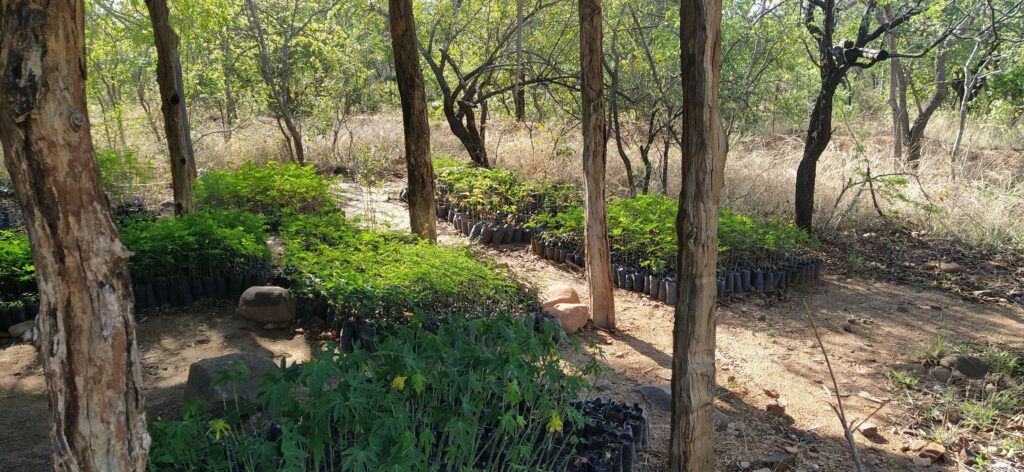
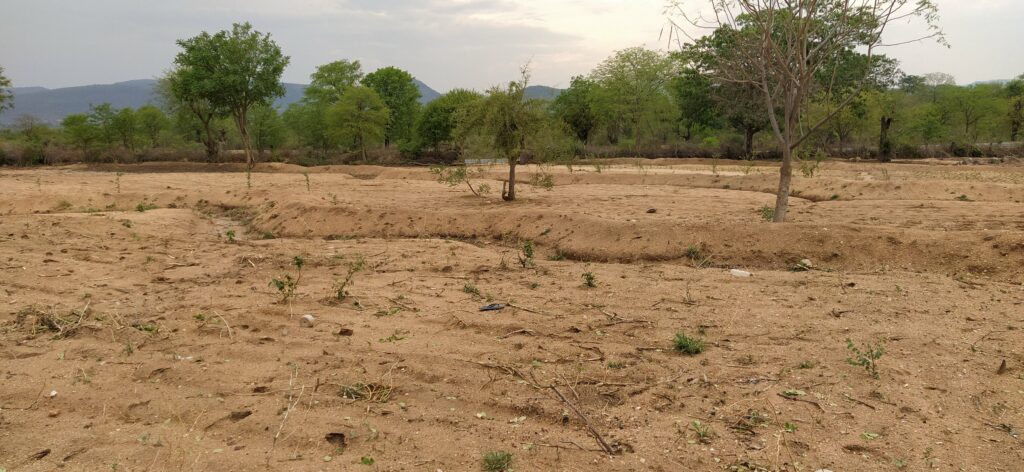
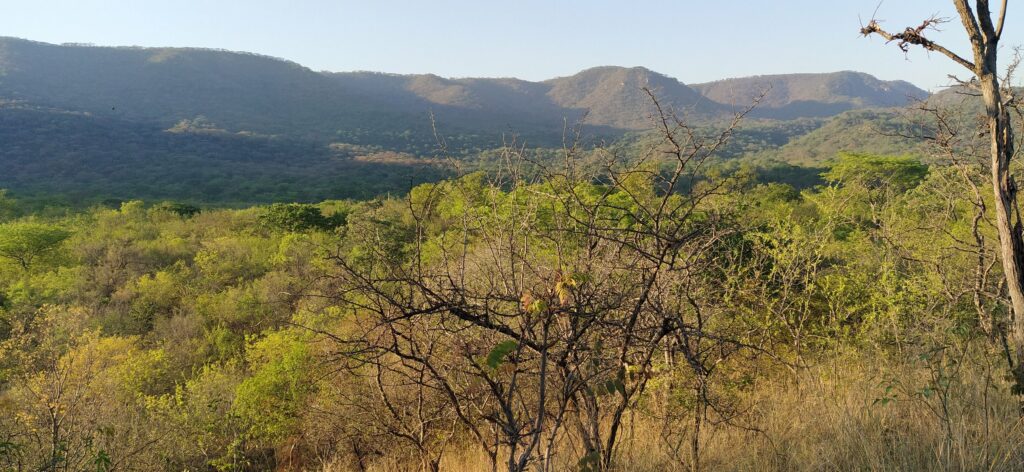
The community have interplanted exotic fruit trees throughout, near the 17 traditional-design huts that house visitors. They grow vegetables in small, more open areas around the centre, the natural trees giving needed shade to the vegetables. All this is enabled by a water-harvesting system that captures every drop of rain that may run off the surface, whether off roofs, roads, paths or soil that is still baked hard and not recovered yet. There are ponds and swales that double as spillways, all interlinked and woven across the sloping landscape; a design that captures all rain, including run-off from the hills above in heavy storms.
They are not going backwards here. They are heading forwards into the 21st century with agroecology providing the framework for their land-use practices. This is a highly sophisticated grassroots land management based on restoring their relationship with Nature.
One afternoon, we visited Mr. and Mrs. Mazungunye, a young couple who are putting into practice what PORET has helped them understand. They are re-rooting and reconnecting to their land in creative ways. What I found most impressive about our walk around their small farm was their energy in explaining to us what they are doing. They are young farmers who know where they are heading, who now understand how to move forward. They are reconnecting to their land in the same way that their ancestors were connected. What was a degrading farm landscape is now recovering. Their efforts to increase ground cover and species diversity, while producing a variety of foods, are based on the latest biological science on soil regeneration.
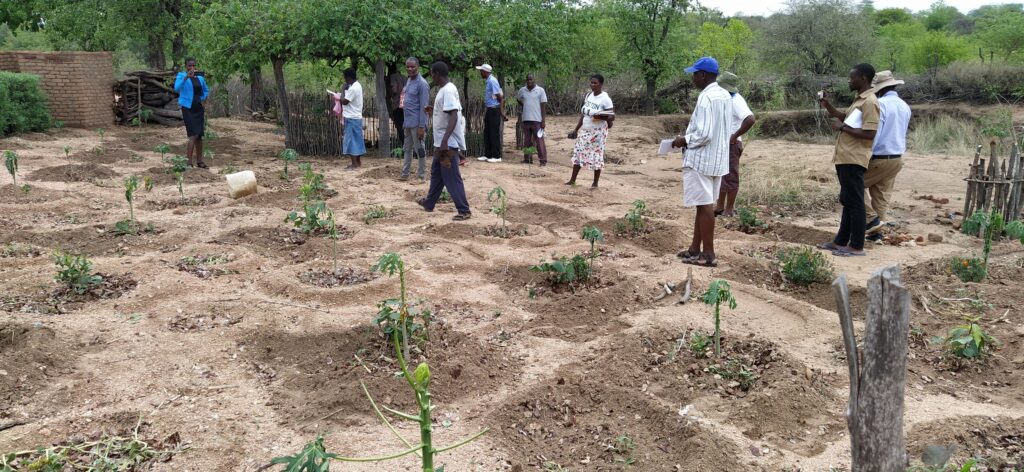
The modern agriculture that people like James Njoroge and others claim is the agriculture of the future is what I would call a 20th century mistake. Chemistry along with vested interests combined to create a kind of agriculture that appeared modern and successful. But we now know how mistaken this perception is. These so-called modern practices have laid bare the earth, millions of hectares of the Earth. The chemicals have killed the life in the soil and water systems everywhere; the pulverizing machine technologies continue to beat the life out of soil everywhere.
By recalling the wisdom of our ancestors’ relationship to land, life and Nature and combining it with the latest understanding and science of biodiversity, we are putting agroecology into practice, a truly modern 21st century practice. Mr. and Mrs. Mazungunye don’t want to go backwards. They are going forwards in their small way, re-rooting and reconnecting themselves to the spirit of their land. They are at the beginning of a transition to agroecology. If I visit them in 10 years time, I’ll return to a landscape in which no water runs off the surface into streams and rivers. Instead the water that used to run off now enters the healthy soil ‘sponge’ on their farm and gives a diversity of multi-storey species nourishment, enabling vast amounts of photosynthesis to happen again, the process that drives healthy landscapes everywhere, in ways that science can now explain to us, to some extent.
The foundation of all agroecology work in Africa is a reconnection to culture and Nature. I hope James Njoroge and others are able to correct their misperception of agroecology.
About the author: John Wilson is a free range facilitator and activist in East and Southern Africa, with strong links to West Africa. He has worked with many different organizations at different levels — from community-based organizations to regional and continental networks, to help facilitate a stronger food sovereignty movement in Africa. Increasingly, he is focused on helping to catalyze and support collaborative and strategic work on agroecology and food sovereignty. In recent years, he has also become a strong proponent and facilitator for a principles-based approach to development work. Working with very complex situations requires a way of decision-making and assessment based on guidance rather than goals; Principles Focused Evaluation has been a strong source of inspiration and experience for his practice.
